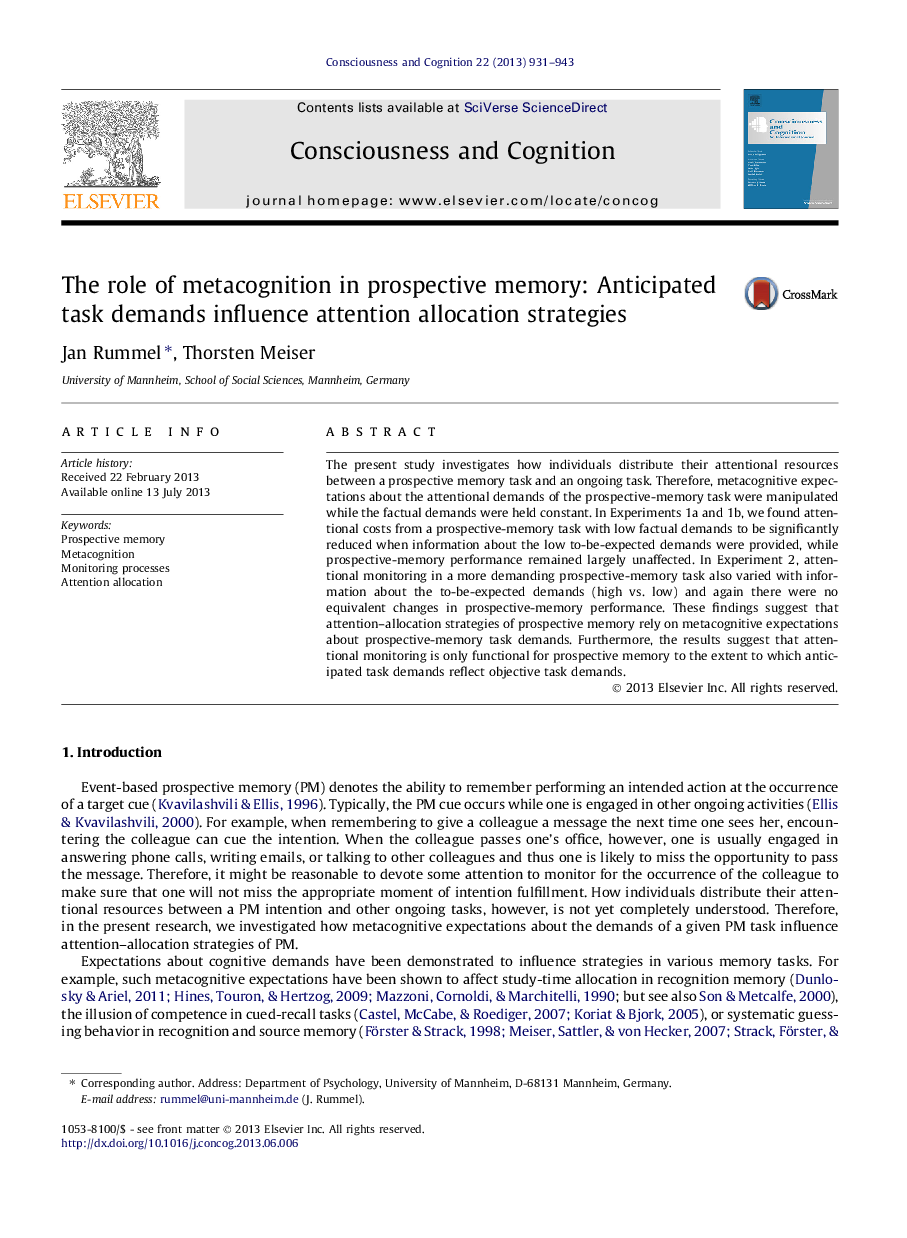| Article ID | Journal | Published Year | Pages | File Type |
|---|---|---|---|---|
| 10458468 | Consciousness and Cognition | 2013 | 13 Pages |
Abstract
The present study investigates how individuals distribute their attentional resources between a prospective memory task and an ongoing task. Therefore, metacognitive expectations about the attentional demands of the prospective-memory task were manipulated while the factual demands were held constant. In Experiments 1a and 1b, we found attentional costs from a prospective-memory task with low factual demands to be significantly reduced when information about the low to-be-expected demands were provided, while prospective-memory performance remained largely unaffected. In Experiment 2, attentional monitoring in a more demanding prospective-memory task also varied with information about the to-be-expected demands (high vs. low) and again there were no equivalent changes in prospective-memory performance. These findings suggest that attention-allocation strategies of prospective memory rely on metacognitive expectations about prospective-memory task demands. Furthermore, the results suggest that attentional monitoring is only functional for prospective memory to the extent to which anticipated task demands reflect objective task demands.
Related Topics
Life Sciences
Neuroscience
Cognitive Neuroscience
Authors
Jan Rummel, Thorsten Meiser,
